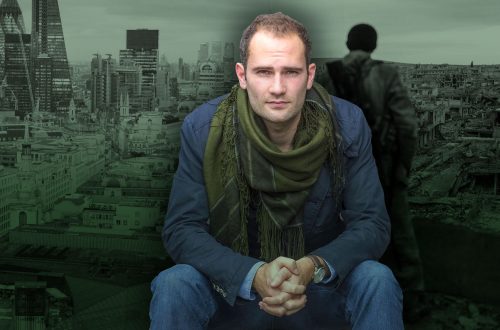This is a guest post by James Snell
While I am to some extent pleased that the campaign to give shelter to Syrian refugees has acquired significant momentum, that small sense of satisfaction is a greatly diminished one. Not only has the total number of those displaced risen almost exponentially since the beginning of the revolution in 2011, hundreds of thousands of Syrians are now dead; that the world has discovered its collective conscience is welcome, but let us not forget that this show of heart is long overdue. Some of us have been writing about this for a very long time. The original iteration of this piece first appeared in December 2013.
Syria is still an issue. It won’t go away just because most people have apparently stopped paying attention. Military intervention is now seemingly off the table – regrettably in my view – and the outside world is pretty much content just to let it all happen. Sadly, although this is morally repugnant, it remains politically popular – and doing anything to lessen the brutality is shrugged off by the British public; after all, such an action would costs money.
The nature of the crisis is changing, and many groups have been drawn into the maelstrom. Religious and tribal Balkanisation has increased the ferocity and brutality of the conflict, and mant factions are guilty of atrocities and possibly war crimes. In short, it is not looking good. Aside from the purely military matters, a humanitarian disaster is slowly accumulating – with many thousands dead from the conflict, Syrians have been sensibly fleeing the horror. This vast movement of people is not a slow trickle but a deluge – millions now survive in refugee camps: on the Syrian-Lebanese border, in hotspots such as Iraq, and in recently unstable Turkey.
The UN estimates there to be over four million registered refugees who have fled this apocalyptic conflict. It is a vast number. Incomprehensible in its scale; impossible to quantify. Where are they to go? The makeshift refugee camps which encircle the country are well intentioned, but they are overflowing. The war-torn nation is surrounded by trouble-spots, and there is a very real possibility that refugees – supposedly living in a safer place – could fall victim to the same violence which forced them to flee Syria.
I have a suggestion. How about we let them all come here? It is not such a controversial viewpoint, surely?
Ian Birrell posed the same question in a no-longer contemporary op-ed for the Independent. Under the headline “Let’s open our borders to Syria’s refugees”, he highlighted the then (largely symbolic) action of Germany’s government in accepting 5,000 temporary refugees from the crisis. This move was doubtless made with the best of intentions, but – if we wish to have a genuine impact on a crisis spiralling out of all control – it is nowhere near enough. (Since then, Germany has made am ethical about-face of impressive proportions. Now its governmentexpects to receive over 800,000 asylum seekers in the course of this year. This is a genuinely principled decision, and Germany will doubtless be commended by future generations – as it should be commended in the here and now – for this tremendous act of moral courage.)
Refugees are pouring into Lebanon in ever-increasing numbers, and an uneasy local history means that tensions are high and escalating. When Birrell put pen to paper, he wrote of the fact that one quarter of all people then residing in Lebanon was Syrian. The number is ever rising, and will soon be approaching half. But the tribal troubles do not end there. Within Syria, Assad and his coterie are all members of a tiny minority group; all are Alawite. As noted by Christopher Hitchens in a farsighted 2004 column for Slate:
Syria has large populations of Sunni, Druses, and Armenians, and the Alawite elite has stayed in power by playing off minorities against minorities. It is in a weak position to rally the rest of society against any identifiable “enemy within,” lest by doing so it call attention to its own tenuous position.
With religious and ethnic issues building up – and the Assad regime and Iran working in concert to stir up sectarian hatred (much in the same way ISIS does) – the need for a pressure valve has never been greater. In allowing those who wish to do so to flee the country, formerly selfish nations can play a serious and positive role in the region.
Britain’s inherent hostility to foreigners is a major stumbling block to this measure. As evidenced by the rise of immigrant-bashing populists such as Nigel Farage and Ukip, it may be hard to get the British people to agree to let Syrians into the country. The comments on Birrell’s piece online sum this worldview up inarticulately but neatly. Despite this, and though it may not be easy, opening our borders to Syrian refugees would be the right thing to do.
We must battle this irrational fear of foreigners; we must allow Syrian refugees into the country. As conditions in hastily constructed refugee camps worsen, and with winter on the horizon, now is the time to take some serious action towards helping people in a region blighted by war, and the ever-present possibility of an escalation in hostilities.
As a rich country, Britain ought to be motivated by a desire to use this wealth to do good things. David Cameron has in my view acted morally in his continued commitment to international development aid – but in cases like that of Syria, he needs to do more.
Opening borders to refugees ought not to be controversial. Helping those who are in desperate need should not be difficult to justify. Despite the popular opposition to this measure, it is one concrete action which the British government can carry out which will actually make a difference on the ground in Syria. For that reason alone, this sensible measure needs to be defended against any consensus.
David Cameron claimed to care about the citizens of Syria when he pushed for military intervention. If he actually does care, he would open the borders of this country to those in desperate need of sanctuary. If he does not, he will only demonstrate the shallowness of his supposed commitment to the Syrian people.


